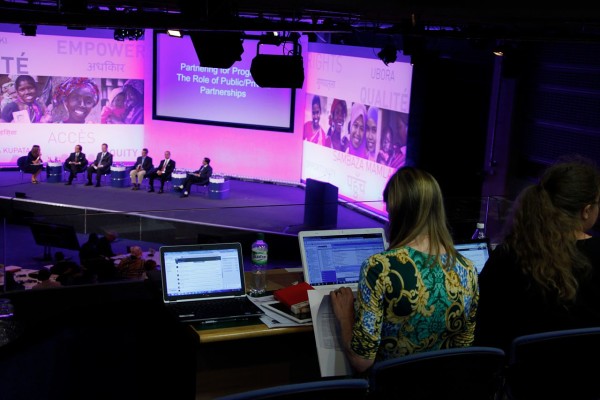In November 2014, the Bill & Melinda Gates Foundation, Pfizer Inc., and the Children’s Investment Fund Foundation (CIFF) reached an agreement to make birth control accessible to women in developing countries. Sayana Press, an injected contraceptive, is sold to distributors for only $1 per dose. The drug will be sold at little to no cost and administered readily to women living in sixty-nine countries by 2020. Injection is the preferred method of birth control because it allows women privacy, ease, and convenience.
Sayana Press contains medroxyprogesterone acetate, a synthetic form of the female sex hormone, progesterone. The synthetic hormone is continually released over three months and stops eggs from traveling into the fallopian tube (ovulation). It thickens the cervical mucus, or mucus near the womb, so that sperm has difficulty fertilizing any eggs, and it also thickens the endometrium, or uterine lining, so that fertilized eggs are prevented from implanting.
Manufactured by Pfizer, Inc., Sayana Press is a lower-dose form of Depo-Provera. Depo-Provera has to be administered with a needle and syringe into the muscle by an experienced health worker. Sayana Press’s simple Uniject injection system makes it easy to teach community health workers how to administer the drug. PATH, an international nonprofit organization based in Seattle, developed this injection system. The pre-filled device is single-use, which lowers the risk of infection from contaminated needles, and it causes minimal pain since the injection is shallow. In the future, women can potentially self-inject the drug in the comfort of their own homes.
At the 2012 London Summit on Family Planning, the UK government and the Bill & Melinda Gates Foundation, in partnership with the United Nations Population Fund (UNFPA) and other contributors, emphasized how voluntary family planning needs to be considered a global health priority. The goal of the summit was to make contraceptives easily accessible to 120 million females by 2020 so that women and girls can decide for themselves the conditions upon which to raise their children.
The drug was first made available in Burkina Faso, Africa in July 2014, followed by Niger, Uganda, and Senegal.
Featured Image Source: Russell Watkins/Department for International Development. No changes were made.










